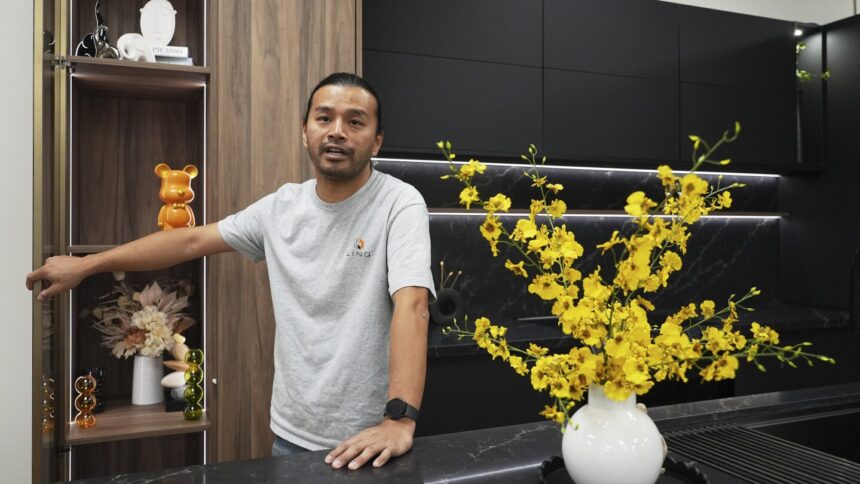Cabinet dealers, interior designers, and remodeling contractors across the United States are closely monitoring the impact of new tariffs on imported kitchen cabinets, bathroom vanities, and upholstered wooden furniture, which took effect recently. While some within the industry express optimism that these tariffs could ultimately foster increased business and domestic production, many small business owners are bracing for potential short-term challenges.
The recently imposed tariffs, with rates as high as 50% on certain imported items, are raising concerns among contractors and clients alike. Allison Harlow, an interior designer in Michigan, highlighted the detrimental effects of fluctuating prices on the remodeling industry. “Most people will hear the headline of ‘Kitchen cabinets will go up 50%’ and might just opt out of even reaching out to our company,” she stated, underlining fears that clients with planned renovations could back off due to increased expenses.
Despite facing a sluggish housing market affected by high mortgage rates, a study from Harvard University’s Joint Center for Housing Studies suggests that homeowner spending on renovations and maintenance will remain steady through mid-2026. This projection offers some hope as businesses navigate the evolving economic landscape.
The tariffs stem from a proclamation by President Donald Trump, citing national security and trade practices as justifications for the tax measures. Specific products, including imported vanities and kitchen cabinets, are experiencing significant tariffs—25% until the end of the year, with the rate set to double at the start of 2024. Upholstered furniture is also affected, with rates initially at 25% and rising to 30% in January. Additionally, a 10% duty on softwood timber was implemented, exacerbating costs for an industry heavily reliant on this imported material.
The National Association of Homebuilders data indicates that about 85% of the United States’ softwood lumber imports come from Canada. Notably, some trading partners receive reduced tariffs, with export taxes from the U.K. capped at 10% and those from the EU and Japan capped at 15%.
Advocacy groups such as the American Kitchen Cabinet Alliance lobbied for these tariffs, arguing they were necessary to curb the influx of cheaper imports from countries like Vietnam and China. While U.S.-made products often come at a higher price, many believe they offer superior quality.
Industry analysts project that the tariffs could add approximately $280 to the average cost of constructing a single-family home, a minor figure relative to the overall costs involved. Some business owners, like John Dean from Dean Cabinetry in Connecticut, are currently absorbing these costs rather than passing them on to consumers. Dean, whose sales include a third of imported products, indicated that raising prices might deter demand. “My perspective is that most small- and medium-sized businesses are trying to absorb those costs,” he explained.
Concerns regarding product availability may heighten as importers streamline their offerings to focus on high-demand items, potentially reducing variety for consumers. Jason Miller, a supply chain management professor, stressed that while prices may not drastically rise, the selection of available products could significantly shrink.
While the White House aims for the tariffs to bolster U.S. manufacturing, cabinet companies reliant on global supply chains may find it challenging to navigate the new landscape. Businesses like Linq Kitchen in Los Angeles, which depends on imported materials, suggest that the tariffs could paradoxically inflate costs across the board. Co-founder Josh Qian noted, “These tariffs may sound protective, but they often raise costs across the entire supply chain.”
In contrast, some domestic cabinet manufacturers are poised to benefit from increased demand. ACO Denver Custom Cabinetry, which sources craftsmanship locally, is hopeful about attracting new business but wary of the challenges associated with sudden surges in demand.
As these tariffs continue to shape the industry, concerns remain about their impact on customer confidence and overall business sustainability. Harlow from Curio Design Studio fears that the narrative of rising costs may dissuade potential clients. “We will have to work harder to attract them with messaging about how this blanket statement… does not impact our particular business model,” she noted, as businesses navigate the complexities introduced by these new economic measures.







